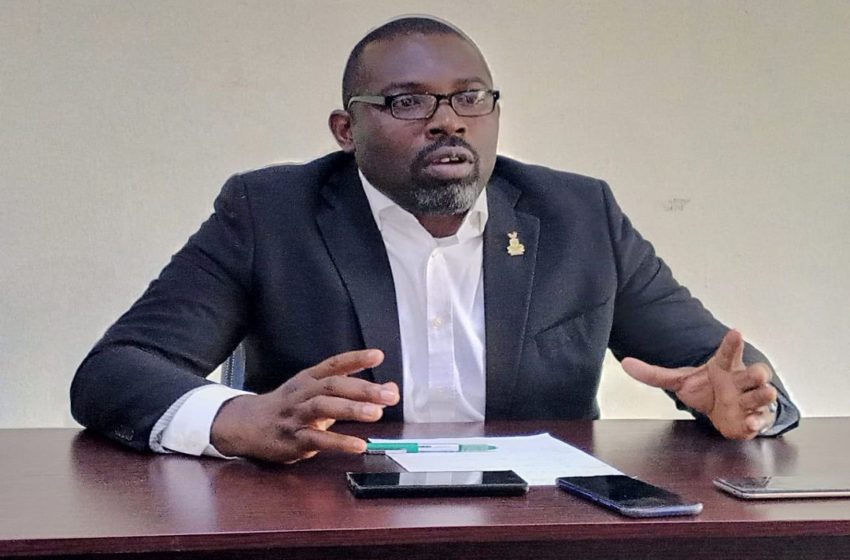AIRS Chairman, Bows out, Restates Importance of Technology in Solving Informal Revenue Collection in Anambra State

The Chairman, Anambra Internal Revenue Service (AIRS), Dr. David Nzekwu, has bowed out after four years of meritorious service as chief executive of the agency, following the appointment of Mr. Richard Nwora Madiebo by the newly minted administration of Prof. Chukwuma Charles Soludo as governor of the south-eastern state.
Speaking to newspersons on Friday, March 25, the ex-AIRS boss graciously thanked the outgone governor, Chief Willie Obiano, for the opportunity to have served the state, restating the role of technology in resolving the challenges of informal and indiscriminate revenue collection in the State.
Earlier reports in the media had erroneously quoted him as saying that he left N30.9billion in Anambra government coffers which he declined, clarifying that the state Internally Generated Revenue (IGR) outlay has since risen from N17 billion when he assumed office in March 2018 to N30.9 billion as at the close of fiscal year 2021.
Findings show that yearly IGR in the State grew from N17billion in 2018, N26billion in 2019, N28billion in 2020, to N30.9billion in 2021 on the back of the agency’s continuous enumeration and automation, strengthening enforcement initiatives and sustaining the growth of tax database.
Internally Generated Revenue is projected at N3.35billion monthly and N40.29bn annually for the current fiscal year 2022, compared to N3.04billion monthly and N36.6billion annually for year ended 2021, the State Annual Budget 2022 presentation reads.
He stated that the number of taxpayers in the state rose from 11,000 to 506,000 being individuals and organizations during the same period due to structural reforms and processes, which his office effected, affirming that N513.9billion total bills are pending for collection across 2.1 million bills that has been electronically generated and uploaded on the state’s digital database.
He alluded that his term as chairman, amongst other things, saw the deployment of technology architecture that was robust for revenue administration, building on a central and vertical systems, with Anambra State Social Identity Number (ANSSID) as a core. Recall that in April 2019, the ex-AIRS boss made ANSSID compulsory for all transactions conducted by taxpayers in the state. This prompted more taxpayers to register and obtain the unique ANSSID number before any payment for government service in the State.
According to him, ‘‘The need to harmonise revenue in the State cannot be overemphasized, and particular attention has to be paid to harmonizing on the account of the taxpayers, as opposed to harmonizing on Revenue Heads. This necessitated our effort to implement electronic billing for Ministries, Departments & Agencies (MDAs) in and electronic receipting system with the introduction of automated Central Billing System and automated Central Receipting System in the state.’’ By harmonizing revenue on the account of the taxpayer, it is easier to know what each taxpayer has been billed, what they have paid and what they owe which improves administration and accountability, making it more difficult for taxpayers to evade payment.
He said that the agency under his watch introduced Community Revenue Officers (CROs) who serve as contacts between the tax authority and the taxpayers in different communities in the state. By dividing the state into compartments of communities and assigning the compartments to CROs, the service is able to cover the entire state and reach all taxpayers in a more efficient manner using the CROs who serve as Account Officers to the taxpayers and manage collections from each Revenue Head within their assigned community.
The ex-AIRS boss further emphasized the importance of enrollment in solving the challenges of informal sector collections. He believes that informality in the absence of formalization. He recommended enrolment of all players in the so called informal sector and the adoption of electronic ticketing for revenue from parks and suchlike locations to minimize leakages arising from manual and indiscriminate revenue collection by non-state actors.
On further increasing the IGR of the State, he noted that value and numbers were two important variables. Hence, the need for a review of the rates while efforts are continued at increasing the number of taxpayers by enrolling more taxpayers into the system. He also noted the need to explore other latent areas that will improve the state IGR such as property tax which has not been explored in the state since 2011, stating that property tax alone can remit to the state as much as N15 billion in 2022.
